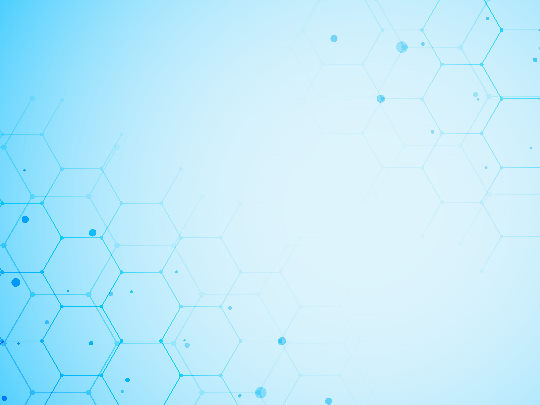Common Myths and Misconceptions About Cancer
In the age of information, it’s easy to encounter a vast array of claims about health and disease. Unfortunately, when it comes to a serious illness like cancer, misinformation can be particularly dangerous. This article aims to address and clarify common cancer myths, providing accurate, evidence-based information to help you make informed decisions about your health.

Key Takeaways on Cancer Myths
- Many everyday substances and activities are falsely blamed as cancer causes; rely on scientific evidence, not anecdotes.
- Unproven “alternative cures” can delay effective treatment and are often financially exploitative.
- While diet and lifestyle play a role in risk, specific foods like sugar do not directly “feed” cancer in the way often described in cancer myths.
- Effective cancer prevention strategies exist and are backed by research, unlike many popular but unproven methods.
- Understanding cancer misinformation is crucial, as believing falsehoods can lead to poor health choices and adverse outcomes.
Addressing Popular Cancer Myths About Causes
The origin of cancer is a complex scientific field, yet it’s often oversimplified or distorted by various cancer myths. Many people worry about everyday items or events causing this disease, leading to unnecessary fear and confusion.
Misconceptions about cancer causes: Are everyday things to blame?
One of the most persistent areas of misinformation revolves around common items and activities. For example, claims that antiperspirants, artificial sweeteners, or even plastic containers cause cancer are widespread. However, extensive scientific research has largely debunked these cancer myths. Regulatory bodies worldwide continuously review the safety of such products, and current evidence does not support a direct causal link between their normal use and cancer development.
- Antiperspirants: No scientific link to breast cancer has been established.
- Artificial Sweeteners: Approved sweeteners like aspartame and sucralose are safe for consumption within recommended limits.
- Cell Phones: While research continues, current evidence does not definitively link cell phone use to an increased risk of brain tumors.
- Microwave Ovens: Microwaves heat food by causing water molecules to vibrate, not by making food radioactive.
Do injuries or stress cause cancer myths?
It’s a common belief that a physical injury, such as a bump or bruise, can directly cause cancer. This is a pervasive cancer myth. While an injury might draw attention to an existing tumor, it does not initiate the cancerous process. Similarly, while chronic stress can negatively impact overall health and well-being, including immune function, there is no definitive scientific evidence that stress directly causes cancer or its recurrence. Managing stress is beneficial for general health, but it’s important not to attribute cancer development solely to psychological factors.
Genetic cancer myths: What’s true about heredity?
Many people believe that if cancer runs in their family, they are destined to get it. This is a nuanced area often subject to `misconceptions about cancer causes`. While some cancers have a strong genetic component (e.g., BRCA mutations for breast and ovarian cancer), only about 5-10% of all cancers are considered hereditary. Most cancers are sporadic, meaning they result from a combination of environmental factors, lifestyle choices, and random genetic mutations that occur over a lifetime, not inherited genes. Understanding your family history is important, but it doesn’t mean your fate is sealed.
Environmental Factors and Cancer Myths
Environmental factors certainly play a role in cancer risk, but `cancer myths` often exaggerate or misinterpret these links. While exposure to certain chemicals, pollution, and radiation can increase risk, it’s rarely a direct, sole cause. For instance, while air pollution is a known carcinogen, it doesn’t mean everyone exposed will develop cancer. The interaction between genetics, lifestyle, and environment is complex, and attributing cancer solely to one environmental exposure often overlooks the broader picture.
Infectious Agents and Cancer: Fact vs. Fiction
Unlike many `cancer myths`, some infectious agents are scientifically proven to increase cancer risk. Viruses like Human Papillomavirus (HPV) can cause cervical, anal, and oral cancers. Hepatitis B and C viruses are linked to liver cancer, and the bacterium *Helicobacter pylori* can lead to stomach cancer. These are not myths but established risk factors, highlighting the importance of vaccinations and appropriate medical treatment for infections.
Debunking Cancer Myths Around Treatment & Cures
The desperation that can accompany a cancer diagnosis often makes individuals vulnerable to `common cancer falsehoods explained` as miraculous cures. It’s crucial to differentiate between scientifically proven treatments and unverified claims.
Common cancer falsehoods explained: Alternative cures.
The internet is rife with stories of “miracle cures” involving special diets, herbal remedies, or obscure therapies that promise to eliminate cancer without conventional medical intervention. These `cancer myths` are not only false but extremely dangerous. There is no scientific evidence to support the efficacy of these unproven methods in treating cancer. Relying on them can lead to delayed or forgone effective treatment, allowing the cancer to progress and become more difficult, or impossible, to treat.
Examples of common falsehoods include:
- High-dose vitamin C infusions: While vitamin C is essential, megadoses are not a cancer cure.
- Essiac tea or Laetrile: These have been extensively studied and found ineffective and potentially harmful.
- Gerson therapy: A restrictive diet and detoxification regimen with no proven benefit.
- Cannabis oil as a standalone cure: While cannabis can help manage symptoms, it is not a primary cancer treatment.
Is there a secret cure? Busting cancer myths.
A persistent `cancer myth` is that pharmaceutical companies or governments are suppressing a “secret cure” for cancer to protect profits. This conspiracy theory ignores the global scientific community’s collaborative efforts and the rigorous, transparent process of drug development and approval. Developing a new cancer treatment involves years of research, preclinical testing, and multiple phases of clinical trials, all subject to intense scrutiny and regulation. If a universal cure existed, its discovery would be a global triumph, not a secret.
Understanding cancer misinformation on treatments.
`Understanding cancer misinformation` is vital because it directly impacts patient choices and outcomes. Misinformation can lead patients to abandon or delay conventional, life-saving treatments in favor of unproven remedies. This not only wastes precious time and resources but can also lead to irreversible disease progression. Always consult with qualified medical professionals for treatment advice and be wary of claims that sound too good to be true.
Chemotherapy Myths: Hair Loss and Beyond
Chemotherapy is often feared due to its side effects, leading to many `cancer myths`. While hair loss, nausea, and fatigue are common, modern chemotherapy regimens are often tailored, and supportive care has significantly improved to manage these effects. Not all chemotherapy causes hair loss, and many patients maintain a good quality of life during treatment. It’s crucial to discuss potential side effects with your oncology team rather than relying on outdated or exaggerated stories.
Radiation Therapy: Precision and Safety
Another area prone to `cancer myths` is radiation therapy. Some believe it makes a patient radioactive or causes severe burns. Modern radiation therapy is highly precise, targeting cancer cells while minimizing damage to surrounding healthy tissue. Techniques like intensity-modulated radiation therapy (IMRT) and proton therapy deliver radiation with incredible accuracy, reducing side effects and improving outcomes. Patients do not become radioactive after external beam radiation therapy.
Comparison of Treatment Approaches
To further illustrate the difference between evidence-based care and unproven claims, consider the following table:
| Feature | Evidence-Based Treatments | Unproven “Alternative” Cures |
|---|---|---|
| Scientific Basis | Rigorous clinical trials, peer-reviewed research, regulatory approval. | Anecdotal evidence, testimonials, often no scientific backing. |
| Mechanism of Action | Clearly understood biological pathways and targets. | Vague explanations, often using pseudoscientific terms. |
| Safety Profile | Known side effects, managed by medical professionals. | Unknown or downplayed risks, potential for harm and drug interactions. |
| Cost | Often covered by insurance; high development costs. | Typically out-of-pocket; can be extremely expensive. |
| Outcome | Proven efficacy in improving survival or quality of life. | No proven efficacy; can lead to delayed effective treatment. |
Unpacking Cancer Myths Related to Diet and Lifestyle
Diet and lifestyle choices are significant factors in cancer prevention and management, but they are also fertile ground for `cancer myths`. Separating fact from fiction is essential for making genuinely healthy choices.
Is sugar feeding cancer a myth? The truth about diet.
The idea that sugar directly “feeds” cancer cells is one of the most pervasive `cancer myths`. While it’s true that cancer cells, like all cells, use glucose (a type of sugar) for energy, this does not mean that eating sugar directly causes cancer to grow faster or that eliminating sugar from your diet will cure cancer. All carbohydrates break down into glucose. A diet high in refined sugars and processed foods can contribute to obesity, which is a known risk factor for several cancers. The focus should be on a balanced diet, not on demonizing a single nutrient.
- All cells use glucose: Cancer cells are no exception; they don’t have a unique preference for “sugar.”
- No evidence of direct feeding: Eliminating sugar won’t starve cancer cells; the body will find other ways to produce glucose.
- Obesity link: Excessive sugar intake contributes to weight gain, a significant cancer risk factor.
- Balanced diet is key: Focus on whole foods, fruits, vegetables, and lean proteins.
Debunking cancer myths about organic food.
Many believe that eating only organic food will prevent cancer. While organic foods may have fewer pesticide residues and some nutritional differences, current scientific evidence does not conclusively prove that an organic diet significantly reduces cancer risk compared to a conventional diet rich in fruits and vegetables. The primary benefit of organic food is often environmental. The most important dietary advice for cancer prevention is to eat a variety of fruits, vegetables, and whole grains, regardless of whether they are organic or conventionally grown.
Lifestyle cancer myths: Does stress cause recurrence?
As mentioned earlier, stress is not a direct cause of cancer. Similarly, the `lifestyle cancer myths` suggesting that stress directly causes cancer recurrence are not supported by strong scientific evidence. While managing stress is crucial for overall well-being and can improve quality of life for cancer patients, it’s important not to blame oneself for a recurrence due to stress. Lifestyle factors like maintaining a healthy weight, regular physical activity, and avoiding tobacco and excessive alcohol are more impactful in reducing recurrence risk.
Processed Foods and Cancer Risk: What’s the Link?
Unlike some `cancer myths`, there is scientific evidence linking the consumption of highly processed foods and processed meats to an increased risk of certain cancers. For example, the World Health Organization classifies processed meats (like bacon, sausages, and deli meats) as Group 1 carcinogens, meaning there’s sufficient evidence they cause cancer. Red meat is classified as a Group 2A carcinogen. This isn’t a myth, but a scientifically established risk factor, emphasizing the importance of limiting these foods in a healthy diet.
Exercise and Cancer: More Than Just Prevention
Regular physical activity is a powerful tool against cancer, going beyond mere prevention. It helps maintain a healthy weight, improves immune function, reduces inflammation, and can positively impact hormone levels. For cancer survivors, exercise can reduce the risk of recurrence for certain cancers and significantly improve quality of life, managing fatigue and other side effects. This is a fact, not a `cancer myth`.
Separating Fact from Fiction: Cancer Myths on Prevention
Preventing cancer is a goal for many, but navigating the vast amount of information can be challenging due to pervasive `cancer myths`. Knowing the `truth about cancer prevention myths` is key to making effective choices.
Truth about cancer prevention myths: What really works?
Many popular beliefs about cancer prevention are not supported by science. For instance, detox diets or specific supplements are often touted as preventative measures but lack evidence. The `truth about cancer prevention myths` is that effective prevention strategies are often straightforward and involve healthy lifestyle choices and medical interventions. These include:
- Avoiding tobacco: The single most important step to reduce cancer risk.
- Maintaining a healthy weight: Obesity is a risk factor for many cancers.
- Limiting alcohol consumption: Excessive alcohol increases the risk of several cancers.
- Eating a healthy diet: Rich in fruits, vegetables, and whole grains.
- Protecting skin from the sun: Reduces the risk of skin cancer.
- Getting vaccinated: HPV and Hepatitis B vaccines prevent related cancers.
Can superfoods prevent cancer myths?
The term “superfood” is a marketing term, not a scientific one. While certain foods like blueberries, kale, or turmeric are rich in antioxidants and beneficial compounds, the `cancer myths` that they alone can prevent cancer are misleading. No single food can prevent cancer. A holistic approach focusing on a diverse, plant-rich diet is far more effective than relying on any one “superfood.” The overall dietary pattern, rather than individual components, drives cancer prevention benefits.
Screening cancer myths: Why early detection matters.
Some `cancer myths` suggest that cancer screening is unnecessary or even harmful. This is far from the truth. Early detection through recommended screenings like mammograms for breast cancer, colonoscopies for colorectal cancer, and Pap tests for cervical cancer significantly improves treatment outcomes and survival rates. These screenings can identify precancerous conditions or cancer at its earliest, most treatable stages. Delaying or avoiding screening based on misinformation can have severe consequences.
Vitamins and Supplements: Do They Prevent Cancer?
The `cancer myths` surrounding vitamins and supplements often promise cancer prevention in a pill. However, large-scale studies have generally shown that for the average person, taking high doses of individual vitamins or supplements does not prevent cancer and, in some cases, can even be harmful (e.g., high-dose beta-carotene for smokers). It’s best to get nutrients from a balanced diet. Always consult a doctor before taking supplements, especially if undergoing cancer treatment.
Regular Check-ups: A Cornerstone of Prevention
Beyond specific screenings, routine medical check-ups are crucial. These appointments allow healthcare providers to assess overall health, discuss risk factors, and recommend appropriate preventative measures or screenings based on individual history. Dismissing regular check-ups based on `cancer myths` about over-diagnosis or unnecessary procedures can lead to missed opportunities for early detection and intervention.
The Harmful Effects of Cancer Myths
`Busting cancer myths and facts` is not just an academic exercise; it has real-world implications for patients’ health, finances, and emotional well-being. Misinformation can be profoundly damaging.
Understanding cancer misinformation’s impact on patients.
`Understanding cancer misinformation` reveals its multifaceted harm. Patients who believe false claims may experience significant psychological distress, feeling guilty that they “caused” their cancer or that they aren’t doing enough to “cure” it with unproven methods. Financially, many unproven therapies are expensive and not covered by insurance, leading to substantial debt. Emotionally, the false hope offered by these myths can be devastating when they inevitably fail.
Why believing cancer myths can delay treatment.
Perhaps the most dangerous consequence of believing `cancer myths` is the delay or abandonment of conventional, evidence-based medical treatment. When patients opt for unproven “cures,” they often forgo surgery, chemotherapy, radiation, or immunotherapy that could save or significantly prolong their lives. This delay allows the cancer to grow, spread, and become more advanced, reducing the chances of successful treatment. The time lost to misinformation can be irreparable.
Busting cancer myths and facts for better health choices.
`Busting cancer myths and facts` empowers individuals to make informed decisions. By understanding what truly causes cancer, what effective treatments entail, and what genuine prevention strategies exist, people can avoid falling prey to misleading claims. This critical thinking is vital for navigating health information and ensuring that medical decisions are based on sound science, not fear or false hope. Always seek information from reputable sources like national cancer organizations, government health agencies, and your healthcare provider.
The Role of Reliable Information Sources
In an era of rampant `cancer misinformation`, identifying and relying on credible sources is paramount. Organizations like the National Cancer Institute (NCI), American Cancer Society (ACS), World Health Organization (WHO), and reputable academic medical centers provide evidence-based, peer-reviewed information. These sources are committed to providing accurate and up-to-date facts, helping individuals distinguish between genuine health advice and harmful `cancer myths`.
Empowering Patients Through Education
Education is the strongest defense against `cancer myths`. When patients and their families are well-informed about their diagnosis, treatment options, and the science behind cancer, they are better equipped to participate in their care, ask pertinent questions, and resist the allure of unproven remedies. Empowering patients with accurate information fosters trust in the medical system and promotes adherence to effective treatment plans, ultimately leading to better health outcomes.
Frequently Asked Questions About Cancer Myths
Does stress cause cancer?
While chronic stress can impact overall health and well-being, including the immune system, there is no definitive scientific evidence to suggest that stress directly causes cancer or its recurrence. Many studies have explored this link, but a direct causal relationship has not been established. Managing stress is important for general health, but it’s crucial not to blame stress for a cancer diagnosis.
Can sugar “feed” cancer cells and make them grow faster?
This is a common `cancer myth`. All cells in your body, including cancer cells, use glucose (sugar) for energy. There’s no evidence that sugar specifically “feeds” cancer cells in a way that makes them grow faster than other cells, or that eliminating sugar from your diet will cure cancer. However, a diet high in refined sugars can contribute to obesity, which is a known risk factor for several cancers. The focus should be on a balanced diet, not on eliminating all forms of sugar.
Are there secret cures for cancer that are being suppressed?
This is a pervasive `cancer myth` and a conspiracy theory. There is no scientific basis to suggest that pharmaceutical companies or governments are suppressing a universal cancer cure. The development of cancer treatments is a global, collaborative effort involving thousands of researchers and institutions. Any breakthrough would be widely published and celebrated, not hidden, due to the immense public health benefit and potential for scientific recognition.
Do cell phones cause brain cancer?
Current scientific evidence does not definitively link cell phone use to an increased risk of brain tumors or other cancers. While research on this topic is ongoing, major health organizations, including the World Health Organization and the National Cancer Institute, state that current data does not establish a causal relationship. If you are concerned, you can reduce exposure by using hands-free devices or limiting call duration.
Can “superfoods” prevent cancer?
No single “superfood” can prevent cancer. While foods like blueberries, kale, and broccoli are rich in beneficial nutrients and antioxidants, the idea that they alone can ward off cancer is a `cancer myth`. Cancer prevention is best achieved through a holistic approach: maintaining a healthy weight, eating a diverse diet rich in various fruits, vegetables, and whole grains, avoiding tobacco, limiting alcohol, and getting regular physical activity. A balanced dietary pattern is more important than focusing on individual foods.
Is cancer purely genetic, meaning if it’s in my family, I’ll get it?
This is a common `cancer myth`. While genetics play a role in cancer risk, only about 5-10% of all cancers are considered hereditary, meaning they are caused by inherited genetic mutations. Most cancers are sporadic, resulting from a combination of lifestyle, environmental factors, and random mutations that occur over a person’s lifetime. While a family history of cancer warrants discussion with your doctor, it does not mean you are destined to develop the disease. Lifestyle choices and regular screenings are still crucial for prevention and early detection.
Disclaimer: The information provided in this article is for general educational and supportive purposes only and does not constitute medical advice. It is not intended to replace professional medical diagnosis, treatment, or advice. Always consult with a qualified healthcare professional for any health concerns or before making any decisions related to your health or treatment.






Warning: Undefined variable $aria_req in /var/www/html/wp-content/themes/Impreza-child/comments.php on line 51
Warning: Undefined variable $aria_req in /var/www/html/wp-content/themes/Impreza-child/comments.php on line 56
Warning: Undefined variable $aria_req in /var/www/html/wp-content/themes/Impreza-child/comments.php on line 67
Warning: Undefined variable $aria_req in /var/www/html/wp-content/themes/Impreza-child/comments.php on line 70
Warning: Undefined variable $aria_req in /var/www/html/wp-content/themes/Impreza-child/comments.php on line 73